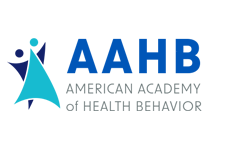Abstract
Annual well visit appointments with personal primary care providers (PCP) are critical for improving population health. However, barriers to healthcare access can hinder routine and preventive screenings and treatment. This study examined the financial, geospatial, and attitudinal barriers to routine PCP visits among rural-residing patients. Data were collected from Amazon Mechanical Turk (MTurk) workers who lived in a rural ZIP code. A logistic regression model was fitted to assess barriers and facilitators associated with receipt of a routine checkup within the past year. The primary predictor of interest was the belief that a personal PCP can improve access to primary and preventive care and therefore improve health (alpha=0.9015). The model also adjusted for age, sex, insurance status, distance to primary care, and typical wait time for a primary care appointment. All analyses were conducted in Stata 17 SE. Increased belief that a personal PCP can improve access to primary and preventive care and therefore improve health was associated with increased likelihood of receiving an annual routine checkup (AOR=1.21, p=0.003). Patients who were insured (AOR=5.16, p=0.003) were significantly more likely to receive an annual routine checkup, while those who travelled farther distances to see a primary care provider were less likely to receive an annual routine checkup (AOR=0.69; p=0.027). Findings suggest that financial, geospatial, and attitudinal barriers may hinder annual routine checkups with PCP. Addressing all three of these potential barriers can have a positive impact on population health by increasing access and utilization of primary care within rural populations.
Author ORCID Identifier
0000-0002-1649-7141
Creative Commons License

This work is licensed under a Creative Commons Attribution-Noncommercial 4.0 License
Recommended Citation
Johannes, Bobbie L.; Prochnow, Tyler; Ortiz, Selena; and Smith, Matthew L.
(2024)
"Receipt of a Yearly Routine Checkup and Beliefs about the Importance of a Personal Primary Care Provider among Rural Patients,"
Health Behavior Research:
Vol. 7:
No.
4.
https://doi.org/10.4148/2572-1836.1252




